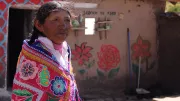The widespread use of debt moratoria in response to the COVID-19 health and economic emergencies has succeeded in stabilizing financial systems and given borrowers all over the world immediate, if temporary, relief. This Briefing examines how the debt moratoria unfolded in India, Peru and Uganda.
CGAP's analysis reveals three distinct journeys country stakeholders have taken to extend the reach and quality of rural agent networks.
While many regulators in emerging and developing markets understand the potential benefits of open banking regimes, they are uncertain how to design them in ways that support financial inclusion. CGAP has identified 12 critical design components.
As a result of the COVID-19 outbreak, further policy steps have proven necessary, both within and beyond the financial sector, to mitigate the impacts of the pandemic on businesses and ordinary people. This Briefing applies five guiding principle to country contexts, and specifically addresses what each principle means for regulatory responses to the COVID-19 crisis.
It is time for DFIs to adopt an alternative approach to financial inclusion that prioritizes needed market changes. A shift to a market systems approach addresses this need and requires that DFIs carefully analyze each market to determine the key gaps, underlying causes, critical actors, and theory of change for bringing about sustainable market development.
Beyond banking, mobile networks also use agents to sell airtime and offer other payments services. In 2005 Perú enacted agent banking rules, and since then a number of players and models have emerged.
This Brief addresses the need for a deeper understanding of the financial needs of poor people. It takes a specific look at segmentation in Mexico.

